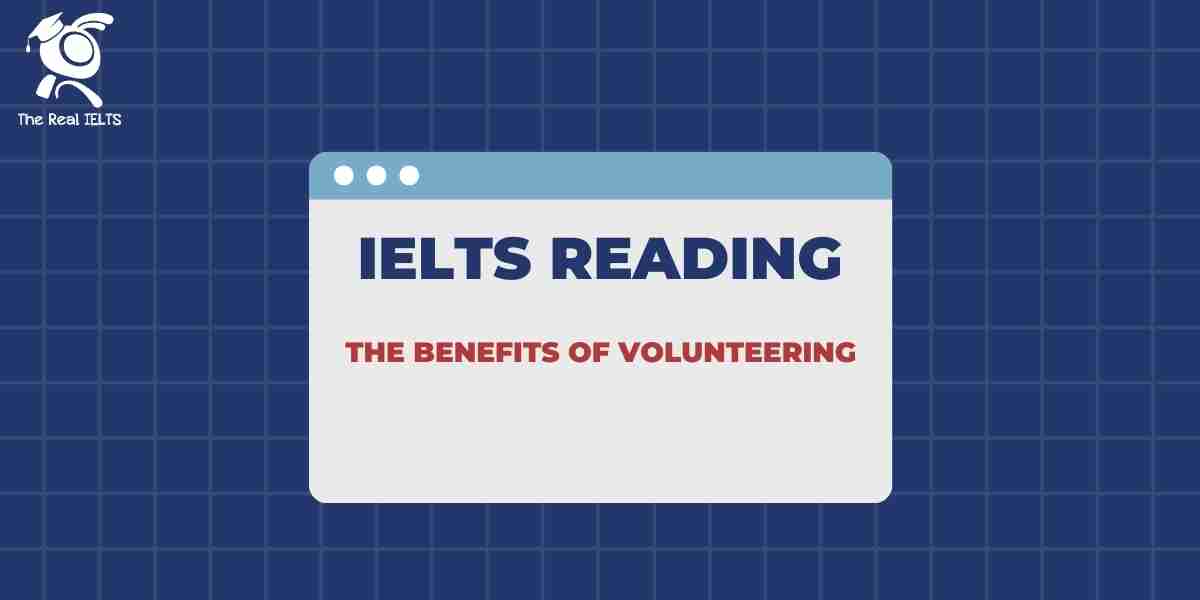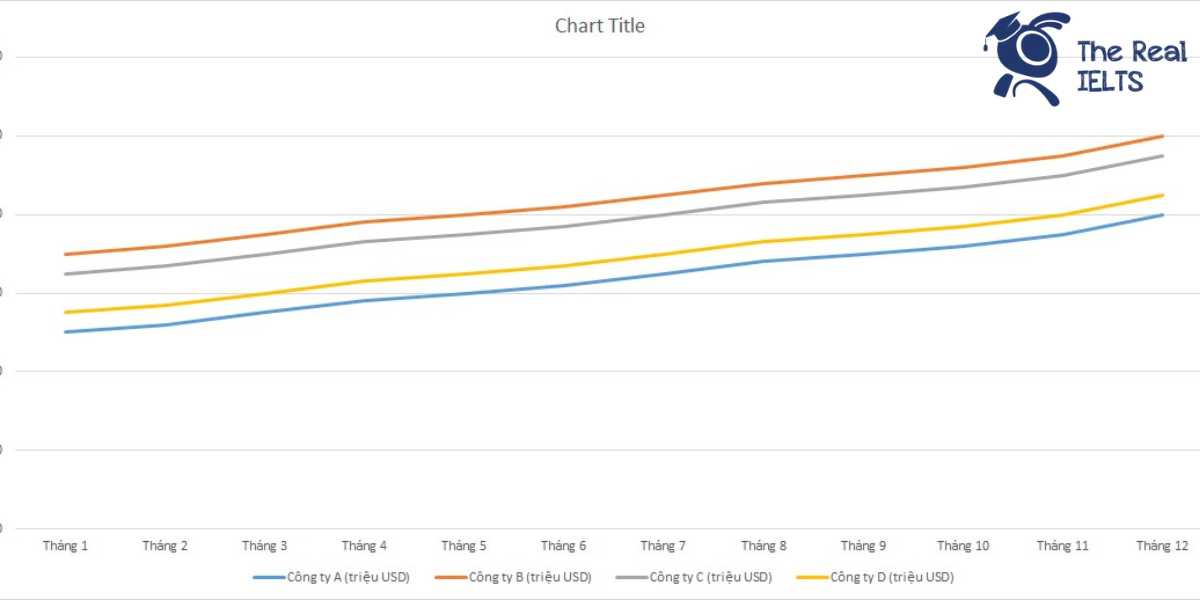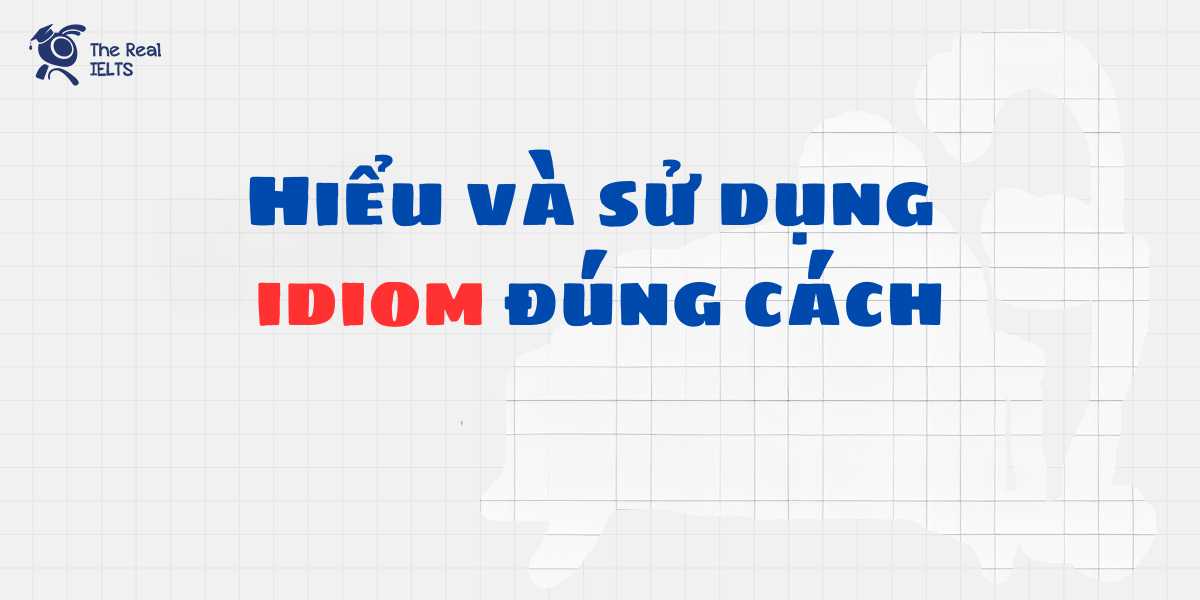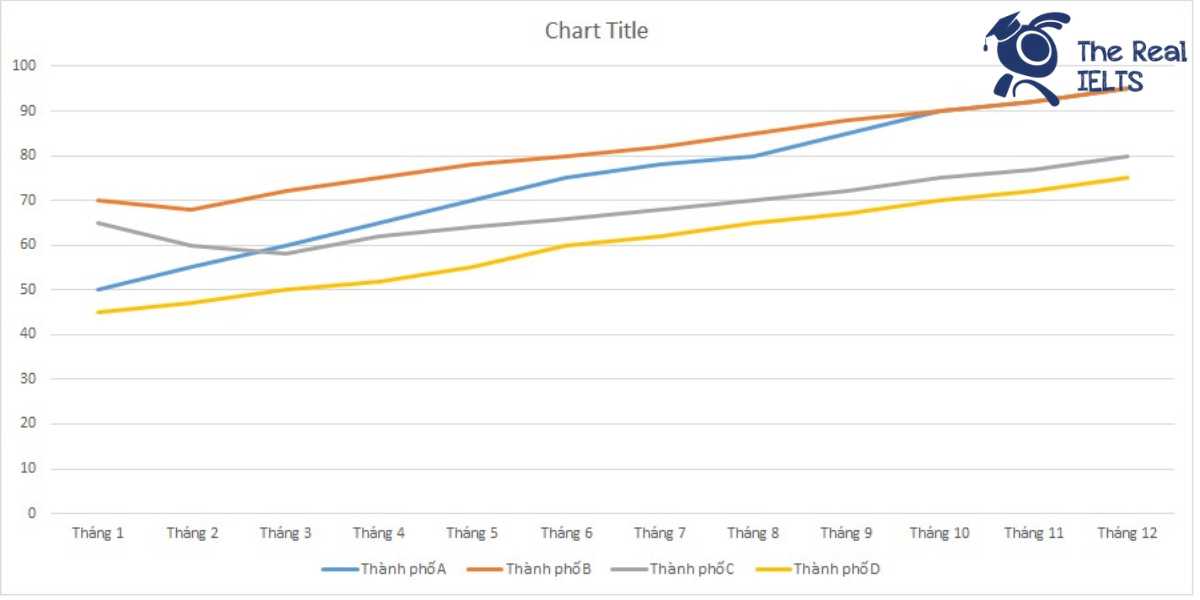Đề thi IELTS Reading có tiêu đề “The Benefits of Volunteering”
Nhớ đọc thêm các bài luyện thi IELTS nhé.
IELTS Reading:”The Benefits of Volunteering“
The Benefits of Volunteering
Volunteering has long been regarded as a noble act, but beyond the ethical and moral satisfaction it provides, it offers numerous tangible and intangible benefits to individuals and society alike. In recent years, volunteering has gained increasing attention not only for its role in community development but also for the myriad personal gains that volunteers can experience. From enhancing personal growth and career opportunities to improving mental and physical health, the advantages of volunteering are vast and varied.
One of the most significant benefits of volunteering is its potential to foster personal growth and self-development. Volunteering often places individuals in new and challenging environments, encouraging them to step outside their comfort zones. Whether it involves working with diverse groups of people, taking on leadership roles, or learning new skills, the act of volunteering provides individuals with an opportunity to grow and develop in ways they may not experience in other aspects of their lives. For example, a person who volunteers to teach underprivileged children might improve their communication skills and patience, while someone involved in environmental conservation might gain a deeper understanding of ecological issues and hands-on experience in preservation efforts.
Furthermore, volunteering can be a powerful tool for building self-confidence and self-esteem. When people contribute their time and effort to a cause, they often experience a sense of accomplishment and pride in their work. Knowing that one’s efforts have made a positive impact on the lives of others or the community can significantly boost an individual’s self-worth. This newfound confidence often extends beyond the volunteer work itself, benefiting other areas of life, such as personal relationships and professional ambitions.
In addition to personal development, volunteering is also an excellent way to acquire and hone practical skills that can be valuable in the workplace. Many volunteering opportunities provide training in areas such as project management, teamwork, leadership, and problem-solving, all of which are highly sought after by employers. For young people or individuals seeking a career change, volunteering can offer hands-on experience in a particular field, providing them with a competitive edge in the job market. For instance, volunteering at a healthcare facility could be particularly beneficial for someone interested in pursuing a career in medicine or social work, as it allows them to gain real-world experience while also making valuable connections with professionals in the field.
Moreover, volunteering often leads to networking opportunities that can be critical in advancing one’s career. By working alongside people from various backgrounds, volunteers can expand their professional and social circles. These connections may open doors to job opportunities, internships, or collaborations that might not have been available otherwise. Many organizations also recognize the value of volunteering and view it as a testament to an individual’s dedication, work ethic, and commitment to the community. As a result, having volunteer experience on a resume can significantly enhance a candidate’s appeal to potential employers.
The mental and physical health benefits of volunteering are equally notable. Numerous studies have shown that volunteering can have a positive impact on mental health, reducing symptoms of depression, anxiety, and stress. This is partly because volunteering allows individuals to focus on the needs of others rather than their own problems, creating a sense of purpose and fulfillment. In fact, research suggests that people who engage in regular volunteer work often report higher levels of life satisfaction and overall well-being. Volunteering also fosters social connections, which are crucial for maintaining mental health. Loneliness and social isolation are significant contributors to poor mental health, but by volunteering, individuals can form meaningful relationships with others, thereby reducing feelings of loneliness and enhancing their sense of belonging.
Physical health can also be improved through volunteering, particularly if the activities involve physical labor. For example, volunteers involved in environmental cleanup projects, construction, or community gardening may benefit from increased physical activity, which can help reduce the risk of chronic diseases such as heart disease and obesity. Additionally, the mental health benefits of volunteering, such as reduced stress and improved mood, can have positive effects on physical health by boosting the immune system and promoting overall wellness.
Beyond the personal gains, volunteering plays a critical role in strengthening communities and promoting social cohesion. When people come together to work towards a common goal, they build stronger, more resilient communities. Volunteers often serve as the backbone of many social services, providing essential support to vulnerable populations such as the elderly, the homeless, and those suffering from illnesses or disabilities. In this way, volunteering not only helps individuals in need but also fosters a sense of solidarity and mutual responsibility within the community.
Moreover, volunteering can be a powerful tool for promoting social change. By volunteering for causes such as environmental conservation, human rights, or poverty alleviation, individuals can raise awareness and advocate for important social issues. Volunteers often serve as catalysts for change, mobilizing resources and inspiring others to take action. In this sense, volunteering has the potential to create a ripple effect, where the efforts of a few individuals can lead to broader societal changes that benefit everyone.
In conclusion, volunteering offers a wealth of benefits, not only for individuals but also for society as a whole. On a personal level, it promotes self-growth, enhances skills, and boosts mental and physical well-being. From a broader perspective, volunteering strengthens communities, fosters social cohesion, and can even drive societal change. Whether driven by altruism or the desire for personal development, volunteering remains an invaluable activity that enriches both the giver and the receiver.
Đề bài thi IELTS Reading
I. Multiple Choice Questions (Trắc nghiệm chọn đáp án đúng)
- According to the text, one of the most significant benefits of volunteering is: A. Making money
B. Fostering personal growth
C. Traveling abroad
D. Getting free training - Volunteering can help individuals: A. Improve their cooking skills
B. Increase their personal network
C. Reduce their social circles
D. Lose confidence - Which of the following skills can be acquired through volunteering? A. Language skills
B. Project management
C. Acting
D. Mathematics - What is one reason why volunteering can boost mental health? A. Volunteers often work alone
B. It provides a sense of purpose
C. It leads to higher salaries
D. It isolates individuals from society - Volunteering is beneficial for physical health because: A. It helps build muscle
B. It often involves physical activity
C. Volunteers receive free healthcare
D. It reduces the risk of accidents - Volunteering can positively affect career prospects by: A. Giving volunteers a salary
B. Offering access to exclusive job postings
C. Developing practical skills and creating connections
D. Offering a direct route to promotion - What kind of activities might improve physical health through volunteering? A. Teaching children
B. Fundraising events
C. Environmental cleanup projects
D. Writing reports for organizations - What role does volunteering play in promoting social change? A. By allowing volunteers to work independently
B. By raising awareness and inspiring others to act
C. By creating exclusive social networks
D. By limiting community involvement - Why is volunteer experience valuable for job seekers? A. It can replace formal education
B. Employers see it as proof of dedication and work ethic
C. It guarantees job security
D. It shows that someone is not career-focused - Volunteering helps reduce symptoms of: A. Chronic diseases
B. Anxiety, depression, and stress
C. Obesity
D. Migraines
II. True/False/Not Given (Đúng/Sai/Không có thông tin)
- Volunteering always involves working with large groups of people.
True / False / Not Given - The text suggests that volunteering is more beneficial for young people than for older adults.
True / False / Not Given - All volunteer work is physically demanding.
True / False / Not Given - Volunteering provides people with opportunities to develop leadership skills.
True / False / Not Given - Research shows that volunteering is more effective in improving mental health than medication.
True / False / Not Given
III. Yes/No/Not Given (Có/Không/Không có thông tin)
- The author believes that volunteering is essential for everyone to participate in.
Yes / No / Not Given - Volunteering guarantees career success.
Yes / No / Not Given - According to the author, social isolation is a major problem that volunteering can help combat.
Yes / No / Not Given - Volunteering is as effective for physical health as regular exercise.
Yes / No / Not Given
IV. Matching Information (Nối thông tin với đoạn văn)
- Volunteering helps to build social networks.
- Volunteering can improve both mental and physical health.
- Volunteers often gain practical skills that are useful in the workplace.
- Volunteering can create social change by raising awareness of issues.
- Volunteering builds self-esteem and confidence.
V. Matching Headings (Nối tiêu đề với đoạn văn)
- Personal growth through volunteering.
- Volunteering as a pathway to a better career.
- The health benefits of volunteering.
- How volunteering strengthens communities.
- Volunteering and social change.
VI. Matching Features (Nối đặc điểm với lợi ích của tình nguyện)
- Building a sense of self-confidence –
A. Community development
B. Personal growth
C. Physical activity
D. Career improvement - Gaining work experience in a particular field –
A. Mental health improvement
B. Physical health improvement
C. Job market competitiveness
D. Networking opportunities - Helping combat loneliness –
A. Mental health benefit
B. Physical health benefit
C. Career growth
D. Social change
VII. Matching Sentence Endings (Nối phần kết câu)
- Volunteering provides an opportunity to gain leadership skills,
A. Which can reduce stress and anxiety.
B. Helping people secure job opportunities.
C. Which boosts mental health.
D. Leading to greater social change. - Volunteers often experience improved self-esteem,
A. Because they connect with people from different backgrounds.
B. Leading to higher levels of life satisfaction.
C. Because they acquire new physical skills.
D. Resulting in better career prospects.
VIII. Sentence Completion (Hoàn thành câu)
- Volunteering can help people improve their __________ skills, such as leadership and problem-solving.
- Engaging in volunteer work can reduce symptoms of __________ and __________.
- Volunteers working in physical environments can benefit from improved __________ health.
- Volunteering fosters social __________, which is important for mental well-being.
- Volunteer work often involves individuals from various __________ backgrounds.
IX. Short Answer Questions (Câu hỏi trả lời ngắn)
- What is one reason why employers value volunteer experience on resumes?
Đáp án bài thi IELTS Reading
I. Multiple Choice Questions (Trắc nghiệm chọn đáp án đúng)
- B. Fostering personal growth
- B. Increase their personal network
- B. Project management
- B. It provides a sense of purpose
- B. It often involves physical activity
- C. Developing practical skills and creating connections
- C. Environmental cleanup projects
- B. By raising awareness and inspiring others to act
- B. Employers see it as proof of dedication and work ethic
- B. Anxiety, depression, and stress
II. True/False/Not Given (Đúng/Sai/Không có thông tin)
- False
- Not Given
- False
- True
- Not Given
III. Yes/No/Not Given (Có/Không/Không có thông tin)
- No
- No
- Yes
- Not Given
IV. Matching Information (Nối thông tin với đoạn văn)
- Volunteering helps to build social networks. – B
- Volunteering can improve both mental and physical health. – A
- Volunteers often gain practical skills that are useful in the workplace. – C
- Volunteering can create social change by raising awareness of issues. – D
- Volunteering builds self-esteem and confidence. – E
V. Matching Headings (Nối tiêu đề với đoạn văn)
- Personal growth through volunteering. – B
- Volunteering as a pathway to a better career. – C
- The health benefits of volunteering. – A
- How volunteering strengthens communities. – D
- Volunteering and social change. – E
VI. Matching Features (Nối đặc điểm với lợi ích của tình nguyện)
- B. Personal growth
- C. Job market competitiveness
- A. Mental health benefit
VII. Matching Sentence Endings (Nối phần kết câu)
- B. Helping people secure job opportunities.
- B. Leading to higher levels of life satisfaction.
VIII. Sentence Completion (Hoàn thành câu)
- leadership
- anxiety and depression
- physical
- connection
- socioeconomic
IX. Short Answer Questions (Câu hỏi trả lời ngắn)
- Because it shows dedication and a strong work ethic.
Luyện tập bài khác ở bài viết:”100 bài luyện IELTS Reading 2024 – 2025“















